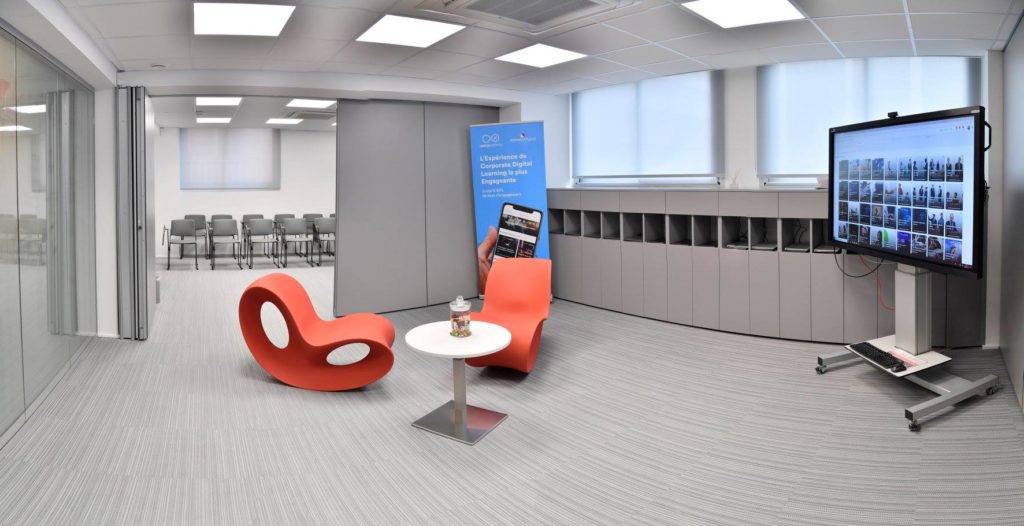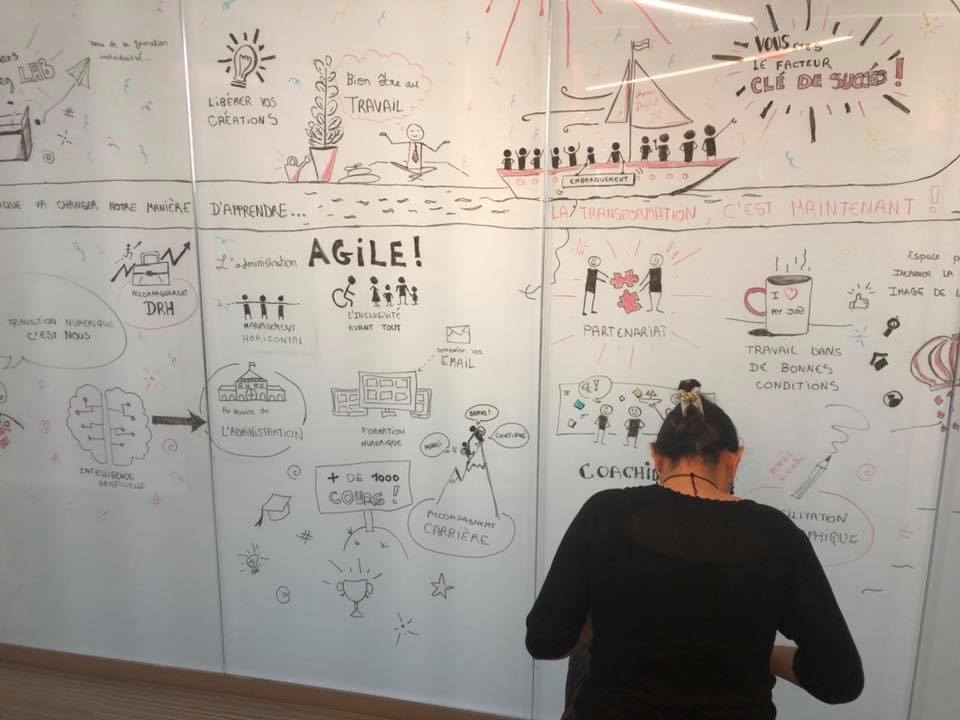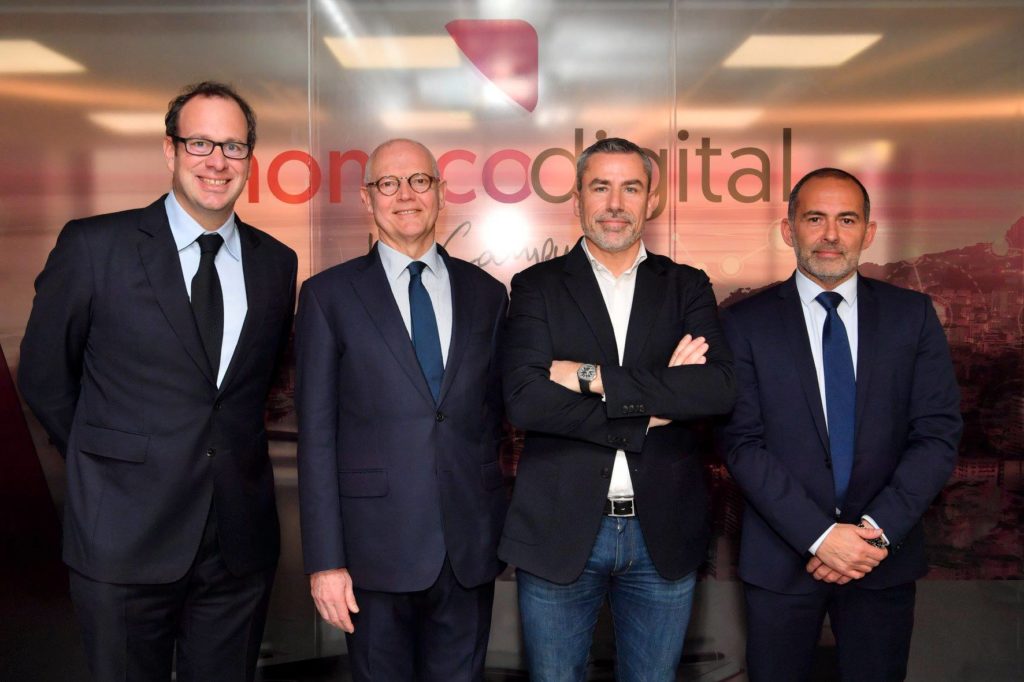February 2019
Campus: a tool to support and ensure the success of the digital transition
Campus is a tool that is supporting the Principality’s digital strategy by providing training for all Monegasque civil servants and state employees by the first quarter of 2020.

Based in the Monaco Digital offices in Fontvieille, Campus is “the incubator of the revolution” spawned by digital technology, in the words of Stéphan Bruno, Director of the Human Resouces and Training Department for the Monegasque civil service. Officially opened by Minister of State Serge Telle in February 2019, this 250 m² learning and experimentation space is capable of hosting groups of between 2 and 80 people, and brings together coaches, activitiy leaders and experts in human resources and in digital technology. It is equipped with training rooms, a dedicated space for collective intelligence workshops, and a studio for creating educational content.
It’s the centrepiece of a set of digital tools that all those working for our Administration 2.0 now have access to.”
Frédéric Genta, Country Chief Digital Officer
Since opening, Campus has been supporting Monegasque stakeholders from both the public and private sectors through their digital transition process. By the end of the first quarter of 2020, it will have hosted some 4,000 civil servants and state employees and delivered nearly 450 training sessions, around a hundred collaborative working workshops and numerous events dedicated to becoming familiar with digital culture and the new technologies which facilitate collaboration and mobility. “What we’re putting in place here is the centrepiece of a set of digital tools that all those working for our Administration 2.0 now have access to,” says Frédéric Genta, Country Chief Digital Officer.
This place will help to draw out ideas, develop new skills and make our Administration a learning and, consequently, a more agile organisation
Stephan Bruno, Human Resources and Training Department Director
The digital transition implies a radical transformation within both institutions and companies in terms of the way they organise their work. It involves changes in technology, but is above all characterised by changes in habits and behaviours. It will offer employees greater independence and flexibility. “Digital technology will eradicate the distance between managers and employees, making it possible to envisage new ways of working which are more flexible and more horizontal,” explains Stéphan Bruno, who is aware of the strategic role that the Human Resources Department will need to play in supporting decision-makers, managers and employees through these changes.

Putting people at the heart of the initiative is a key factor for success. “The digital transition will facilitate collaboration, with new ways of working, learning, managing, communicating and cooperating: a revolution in terms of the approach to learning and management,” he told department heads during his presentation of Campus. He added: “This is the tool that the Administration has been missing to help support our transformation and ensure that it is a success. This place will help to draw out ideas, develop new skills and make our Administration a learning and, consequently, a more agile organisation.”
The Monegasque Government’s ambition is, moreover, to become the most inclusive administration in the world. “The Administration’s current priorities are to attract, retain and develop talented people. We want to enable everyone to flourish, including through access to training and information for all,” emphasises Minister of State Serge Telle, highlighting the importance of mastering the new tools which have been made available to government staff.
9 out of 10 companies don’t know what point they have reached in their digital transition
Campus also provides training to support private companies through the cultural and organisational change resulting from the digital transition. By 2030, 85% of the careers that we are familiar with today will have been transformed. Yet nine out of ten companies don’t know what point they have reached in their digital transition. What organisational model should they adopt? What processes need to be put in place? What are the essential skills that they need to acquire? In short, how can they get involved in the Principality’s ambitious objective?
To kick off this change in corporate culture, Campus encourages team competition and helps to draw out innovative ideas. It is equipped with smart collaborative tools that are fun to use and foster the stimulation of collective intelligence (configurable interactive screens, etc.).
Basing their approach on neuroscience research, and in particular the fact that 70% of learning is facilitated by experience, 20% by social interaction and just 10% by formal information transmission methods, trainers structure their workshops around role play and games.

Monaco Digital, a strategic partner for the State
The Monegasque State owns a 15% stake in Monaco Digital, the Monegasque digital services company that hosts Campus. It has appointed two directors for this area of work: Stéphan Bruno, Director of the Human Resouces and Training Department, and Frédéric Genta, Country Chief Digital Officer.
Monaco Digital has been a strategic partner for the State for more than five years. It brings together all aspects of digital in one place: infrastructure, networks, managed services, app development, consulting and cybersecurity (the company conducts audits for critical infrastructure operators in Monaco).



